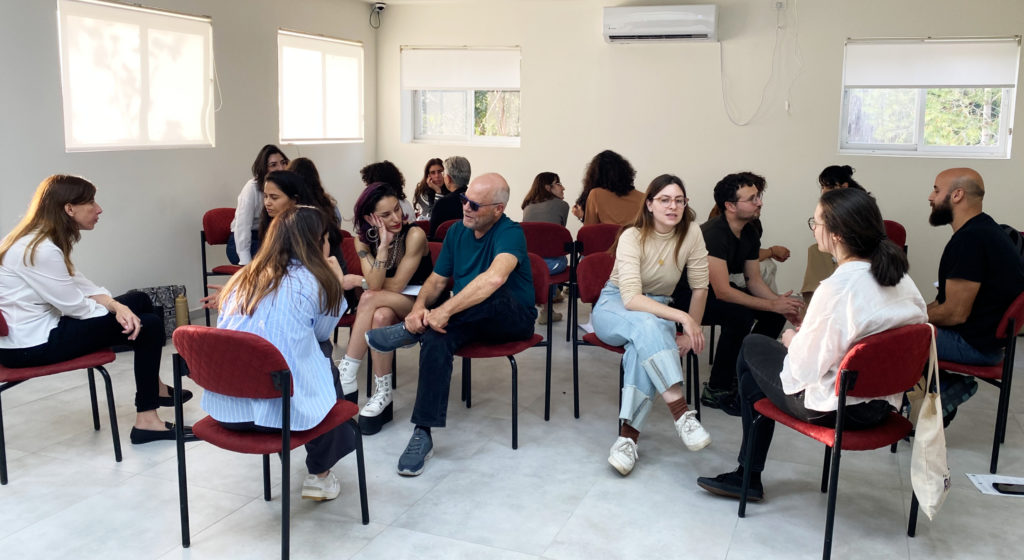Interim Summary: Change Agents Course for Urban Planning
Interim Summary of the Change Agents Course for Urban Planning, Civil Engineering, and Architecture Professionals
A collaboration between the School for Peace and the Arab Center for Alternative Planning, this is the fifth cohort.
What is the Jewish-Palestinian Planners Course?
Urban planning can be used as a tool for controlling a minority group or an occupied population. In Israel, planning is influenced by political forces and economic interests, often serving the powerful. While typically not seen as political, planning deeply impacts both political and physical space.
The course addresses the intersection of nationality and profession within the Jewish-Palestinian conflict. It explores the dilemmas planners face when balancing human rights, economic, political, and national considerations. The School for Peace’s conflict resolution expertise, combined with the Arab Center for Alternative Planning’s urban planning knowledge, allows for a deep examination of these issues.
The course includes 22-24 participants, equally split between Jewish and Palestinian professionals, running from March 2024 to March 2025.
Opening Workshop: March 28-30, 2024, at Neve Shalom
The opening workshop was postponed from November 2023 to late March 2024 due to the outbreak of war. After several months of recruitment, assisted by alumni from previous courses, a group of 22 participants was formed, consisting of 11 Jewish and 11 Palestinian professionals from planning fields. Amid the constraints of ongoing conflict and overlapping holidays, the weekend was dedicated to bi-national and uni-national dialogues aimed at fostering group cohesion and enhancing understanding of diverse identities and national and professional perspectives.
During the first day of the workshop, we discussed participants’ expectations for the course, leading to conversations about planning issues and other relevant topics related to the conflict. On the second day, the discussion about the war deepened, with participants linking the current conflict to the Nakba of 1948. Issues such as the mistreatment of Palestinian prisoners and the persecution of Palestinians expressing empathy for those suffering in Gaza were raised, creating a palpable sense of despair. By the final day, the discussion turned to responsibility—how each national group and individual can take action to change the situation. Participants expressed satisfaction with the course’s start, found the dialogue meaningful, and wished to continue exploring these topics.
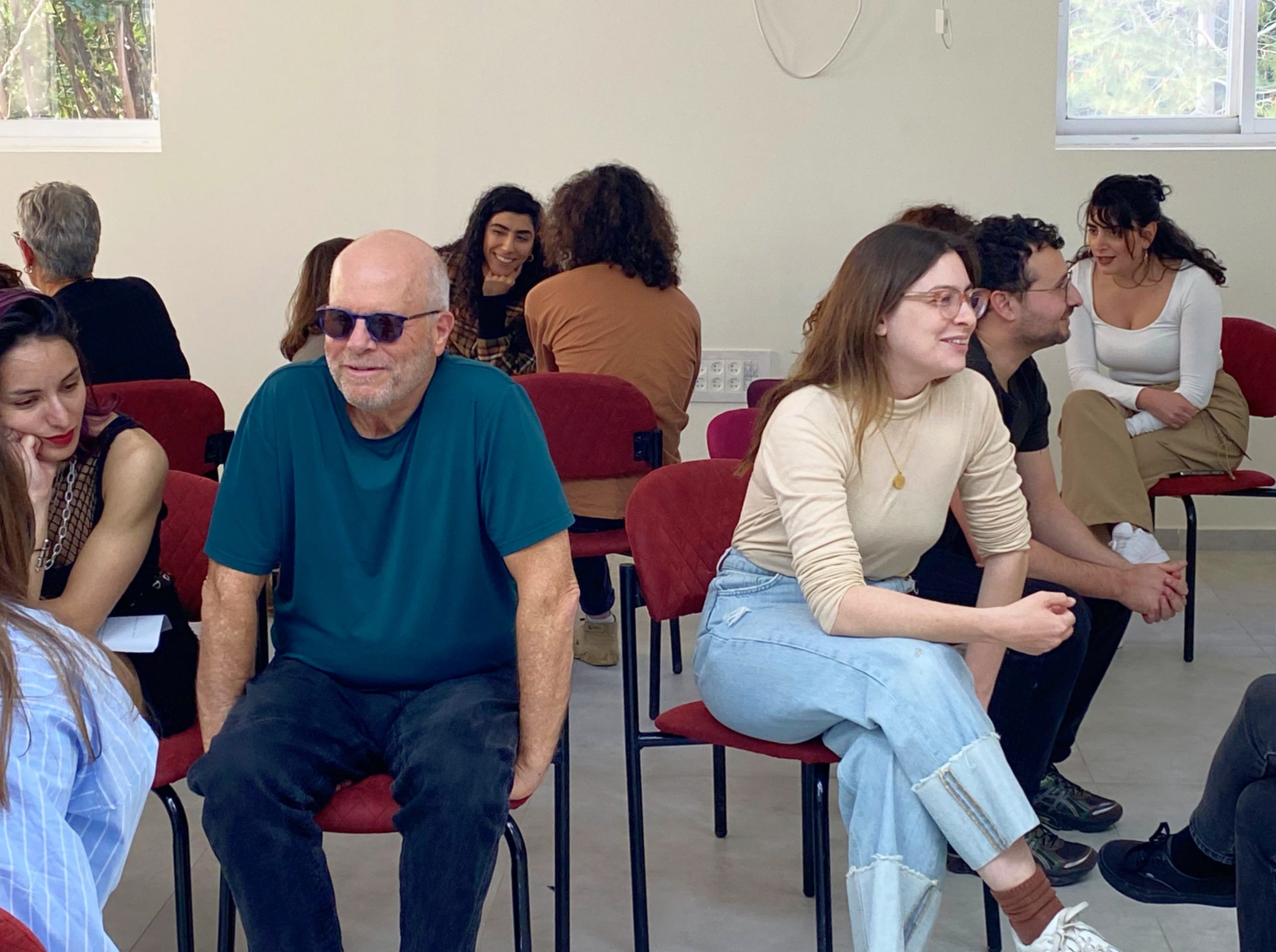
—
Second Meeting: May 3, 2024, Nazareth
A Jewish participant described the meeting as a “ray of hope” amidst despair, while a Palestinian participant appreciated the safe space to talk.
Dr. Samer Sweid opened the session by presenting the center he manages. We then engaged in dialogue, during which one topic that arose was the pro-Palestinian demonstrations at universities worldwide. Jewish participants expressed mixed feelings about these protests, acknowledging their causes while also feeling threatened by them. Another topic discussed was the existence of exclusively Arab NGOs in Israel. One Jewish participant questioned the necessity of such organizations, while the Palestinian group emphasized their importance, viewing them not as a means of separation but as a way to build and strengthen the Palestinian minority in Israel.
Architect Raneen Odeh gave a lecture on the challenges facing Palestinians in planning. The group then toured Nazareth.
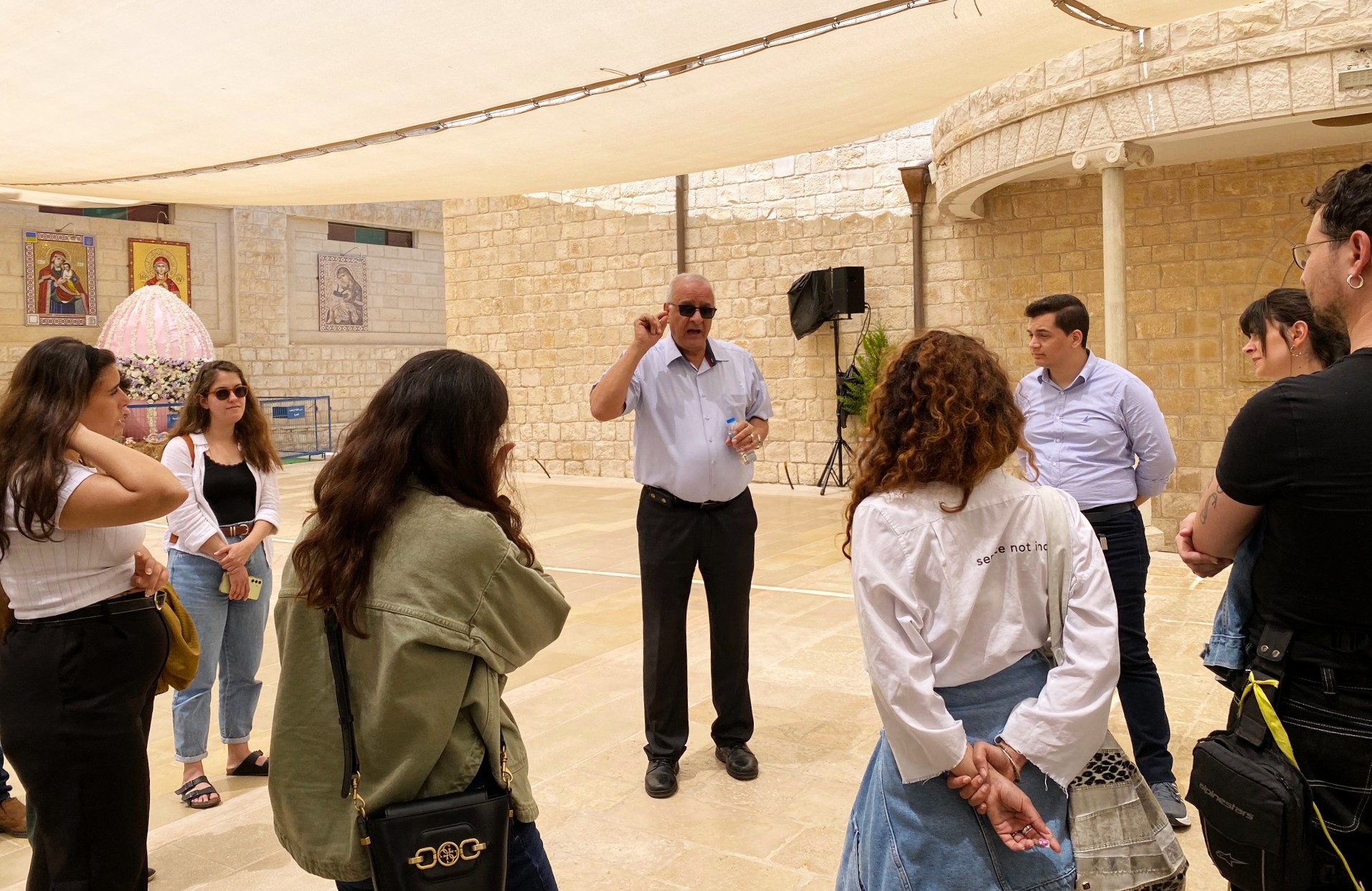
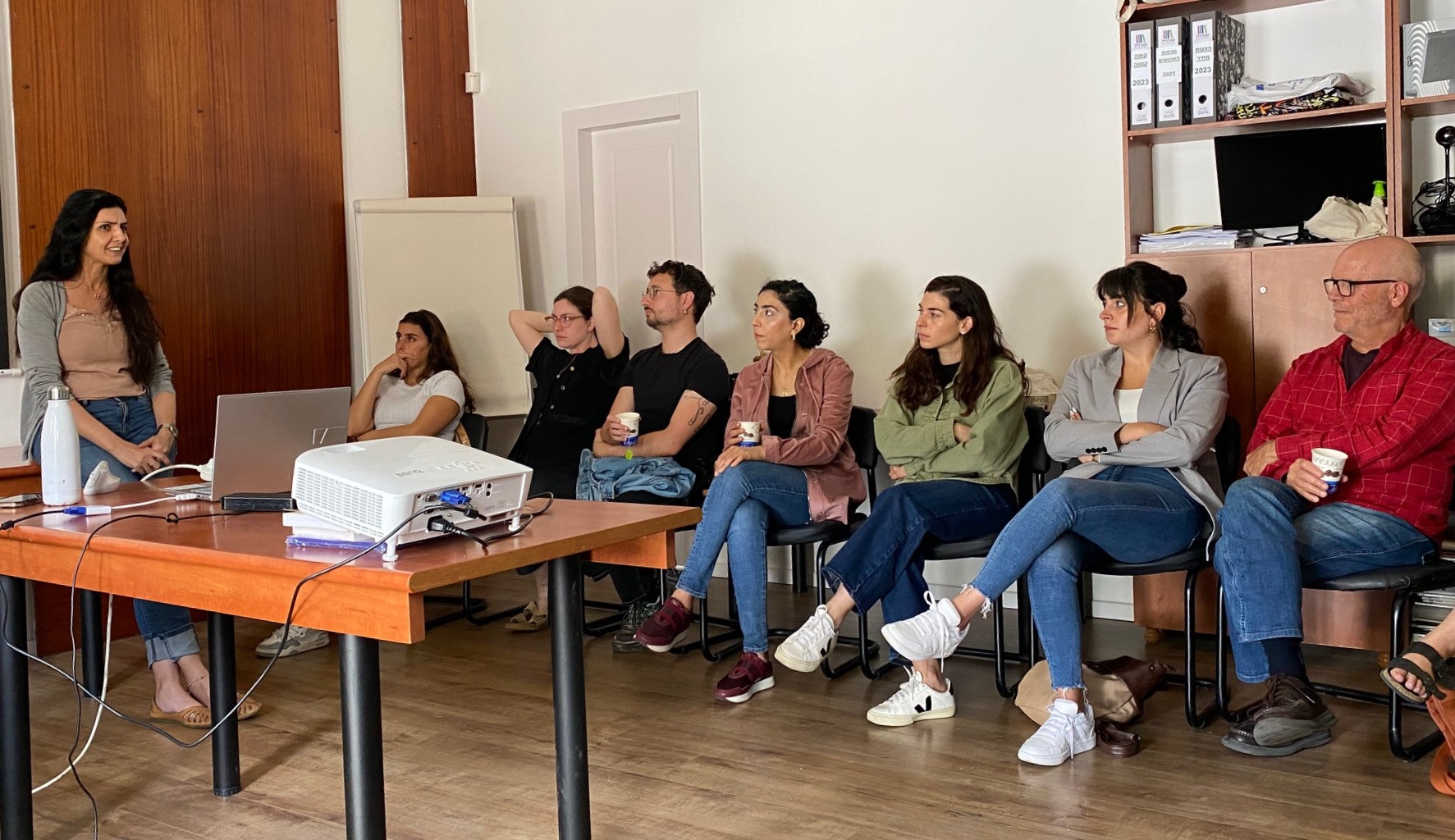
—
Third Meeting: May 24, 2024, Neve Shalom
The meeting consisted of two parts: a lecture and a dialogue. We began with a lecture by Professor Oren Yiftachel on “The Israeli Spatial Regime and the Question of Palestine: Between Ethnocracy and Apartheid.” During the dialogue, participants expressed deep concerns about the horrific loss of life in Gaza and the suffering of its population, which goes unreported in the Israeli media. Palestinian participants shared their fears and feelings of powerlessness in the face of the war, despite their commitment to effecting change. However, they also recognized the importance of persevering through uncertainty, valuing their participation in the course, the dialogue, and their ongoing efforts.
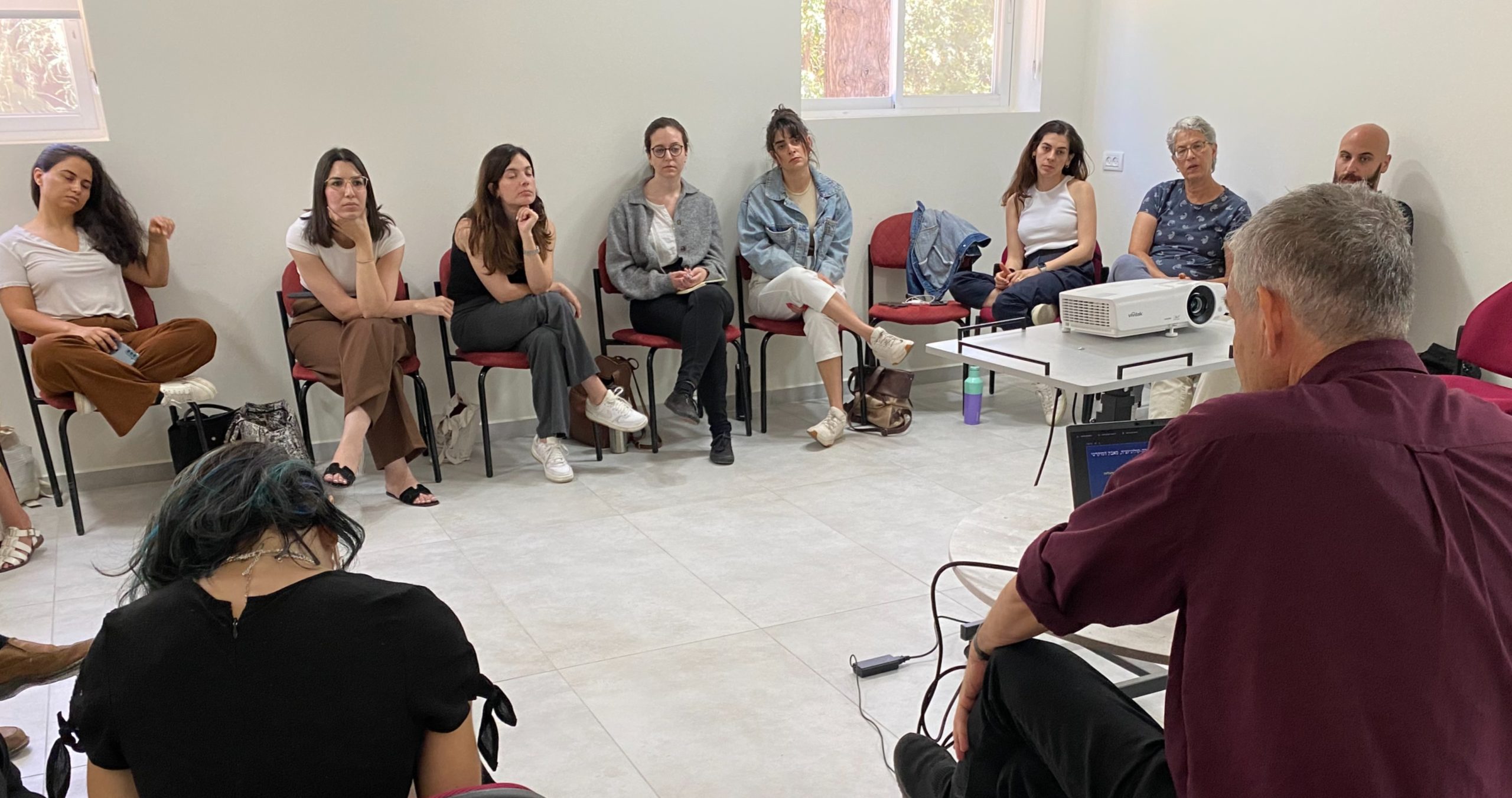
—
Fourth Meeting: June 28, 2024, Nazareth
Jewish participants expressed frustration over the High Court’s ruling on ultra-Orthodox conscription, while Palestinians viewed this as an internal issue, emphasizing the need for a ceasefire as the main issue. The significant gap in perspectives was evident, with one participant noting that total agreement may not be possible.
The discussion also touched on the Sde Teiman detention camp, with one participant comparing its conditions to Guantanamo due to the mistreatment of Gaza detainees. This point received some agreement, and a Jewish participant mentioned efforts by the high court to close the camp. Feelings of despair about the situation were common.
Additionally, one participant shared a project to improve a neglected stream in his village, receiving feedback on how to proceed. Dr. Enaya Banna-Jeries then delivered a lecture on “Planning and Construction in Palestinian Society,” stating, “We live in spatial segregation.” Read more about the lecture.
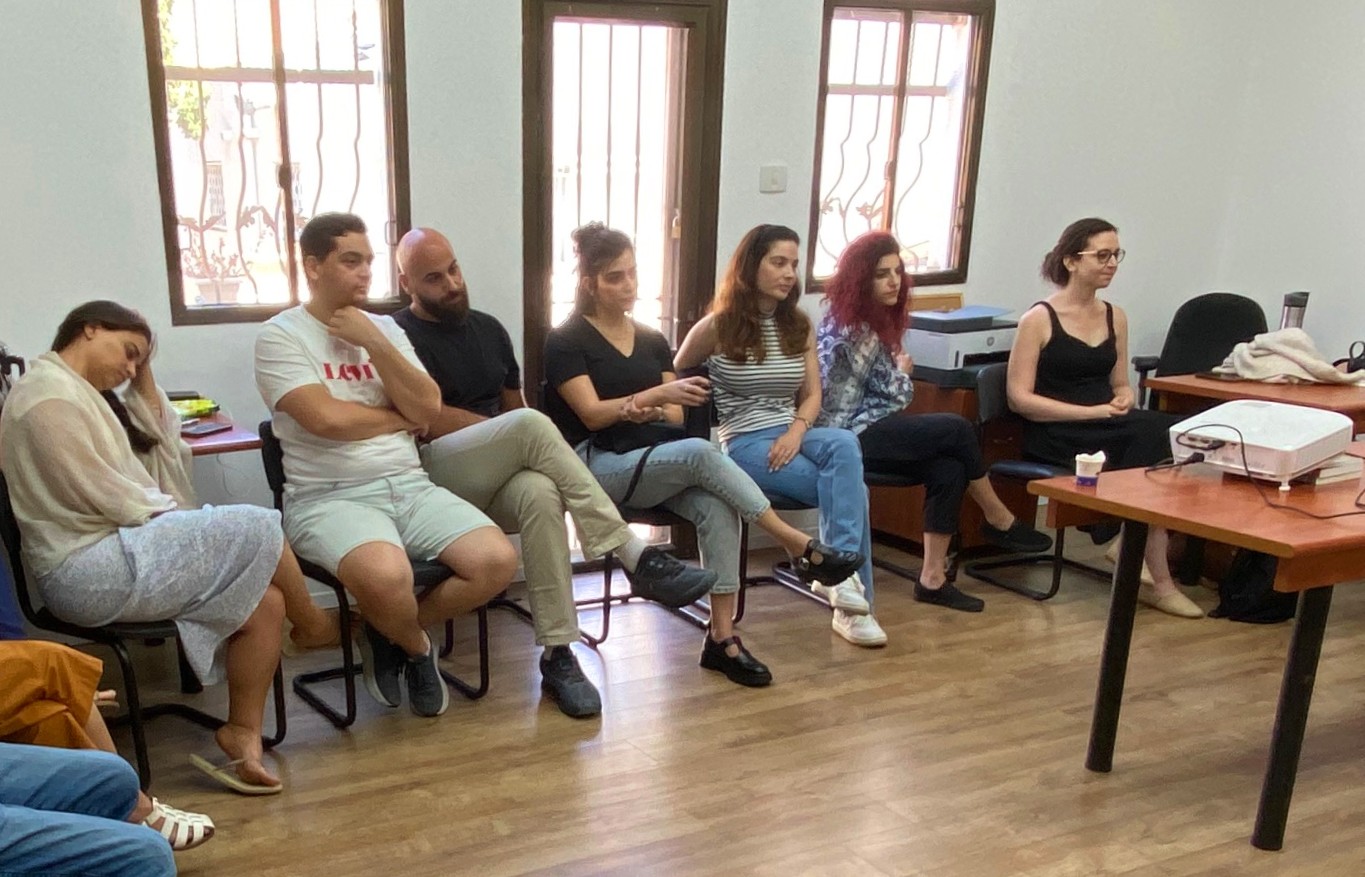
—
Spotlight on a Participant: Majd Raas, 31, Resident of Jaffa, Originally from Qalansuwa
Majd started as an accountant after studying at Tel Aviv University and working for five years. While politically active with the Balad Party, he felt a disconnect between his profession and daily work – and his desire for social change. He became a parliamentary advisor to MK Sami Abu Shehadeh but sought direct influence within Palestinian society in Israel, particularly through urban planning. Majd is now pursuing a master’s in urban planning and works as a social consultant at People – Social Urban Planning, managing projects in Arab towns like Kafr Qasim and Nazareth. He helped the firm expand its work to Arab communities.
Majd joined the planners’ course based on recommendations from colleagues and sought knowledge on planning in Palestinian society, which is rarely covered in formal studies in Israel. He appreciates the course’s focus on politically explicit planning and the opportunity to connect with others in the field.
Despite the challenges of discussing planning amid conflict, Majd finds value in the course’s open dialogue. He says, “The course promotes a political agenda that feels far removed from the current reality, making it difficult to bridge that gap. However, it provides a unique space where issues are openly discussed, offering a mature way to address the situation that isn’t found elsewhere.”
—

